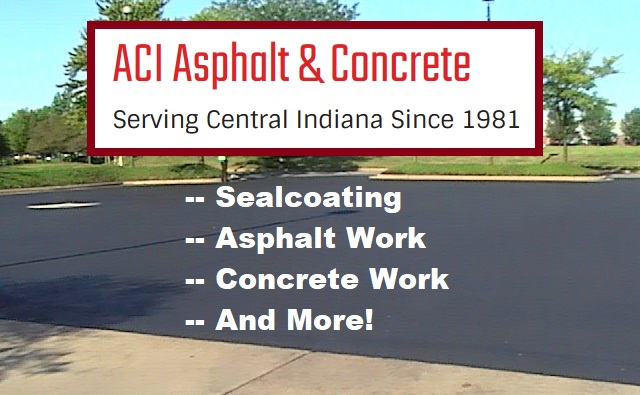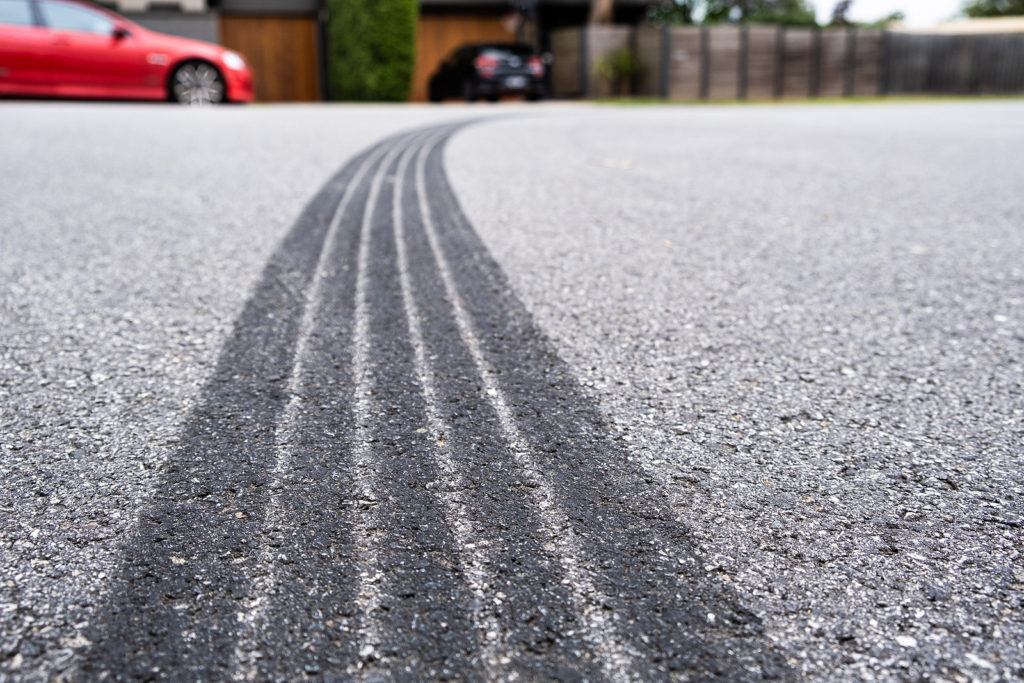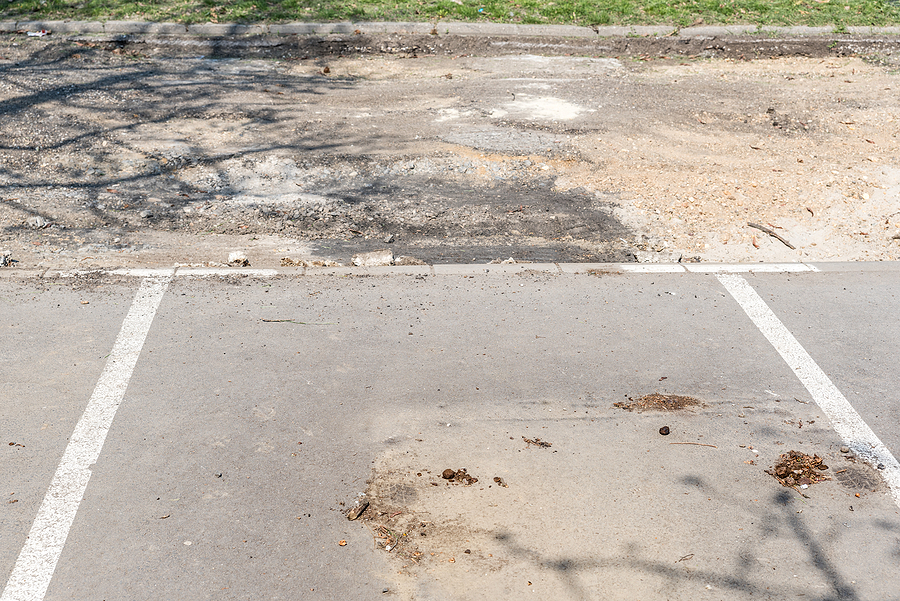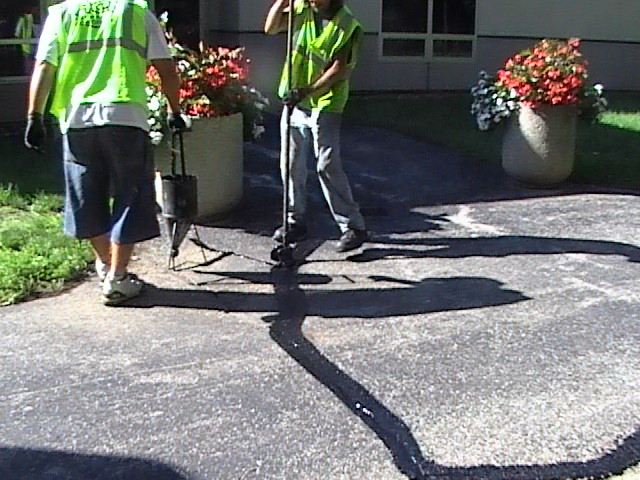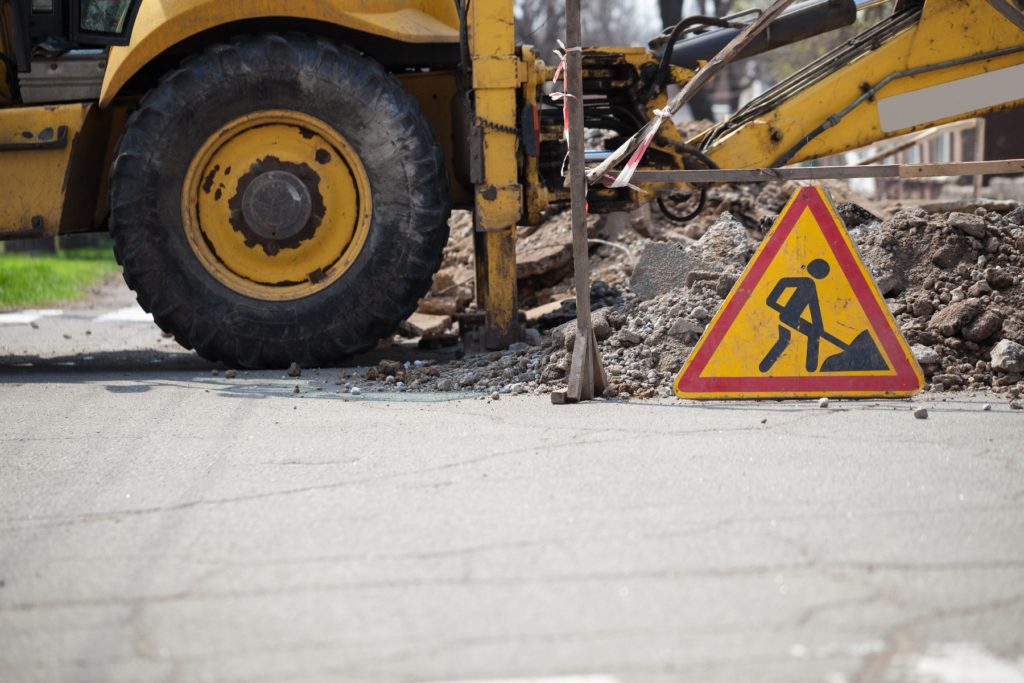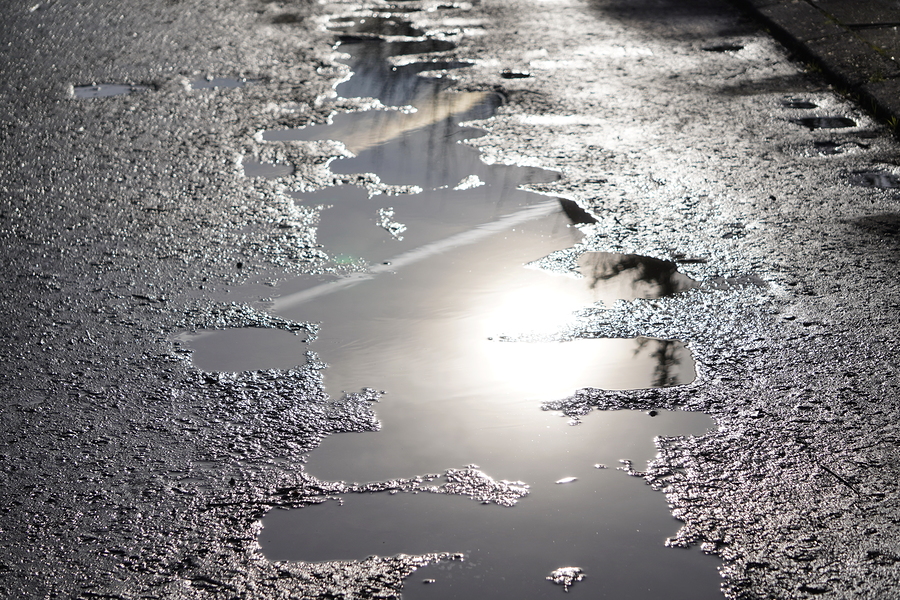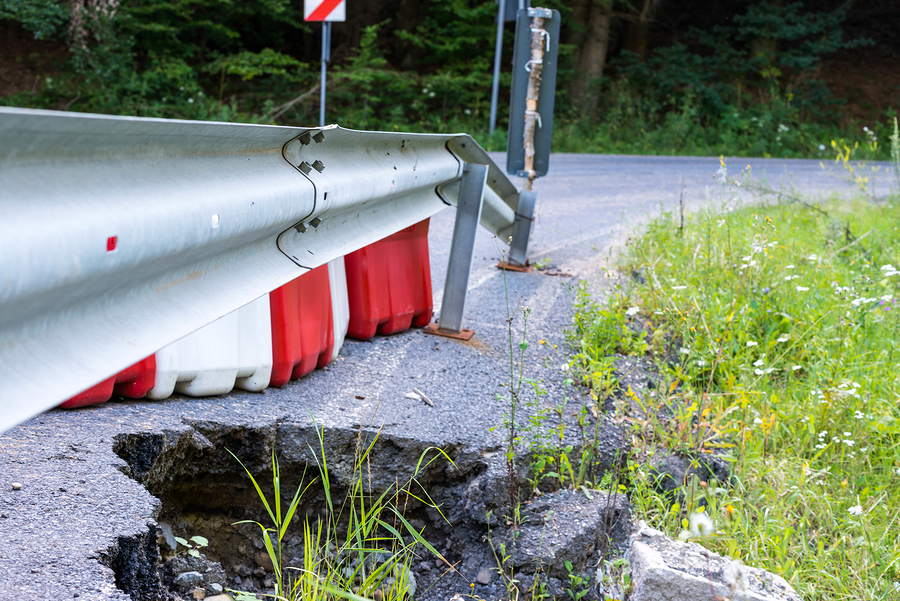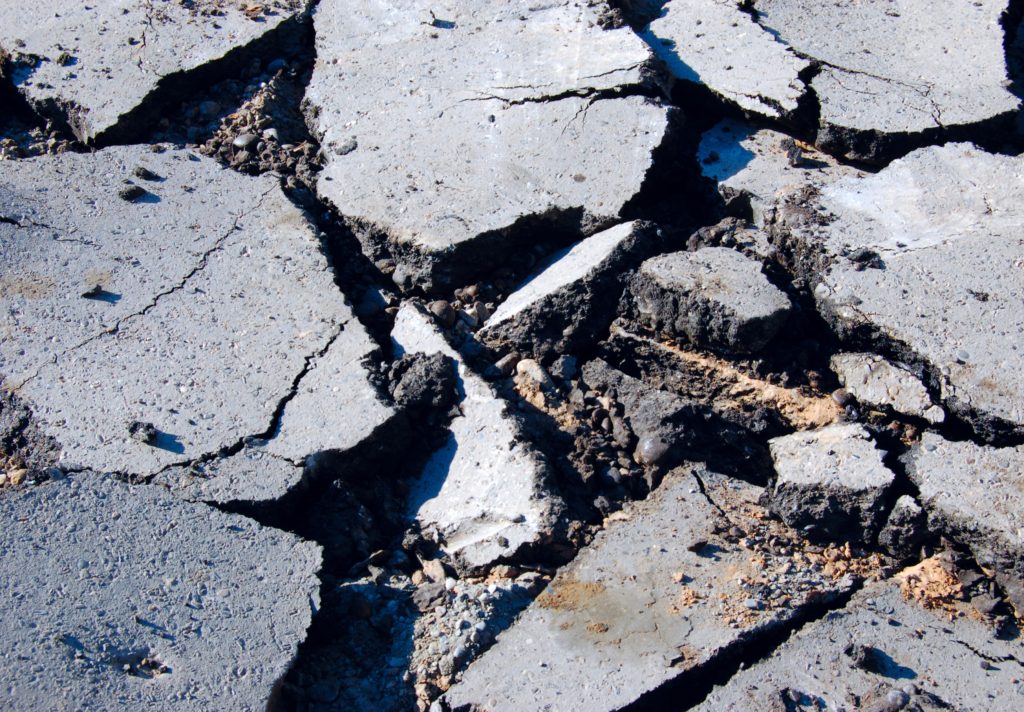Cold patch asphalt is quite innovative for our time. It is currently the easiest and most economical way to repair small potholes, crevices, and cracks in bitumen-based pavements. If you plan on tackling a paving project on your own, the most important factor to consider is the hardening process. If this phase of the cold asphalt patch method is jeopardized, it can greatly reduce the quality of results.
Continue below to learn some professional paving recommendations for using and curing cold patch asphalt.
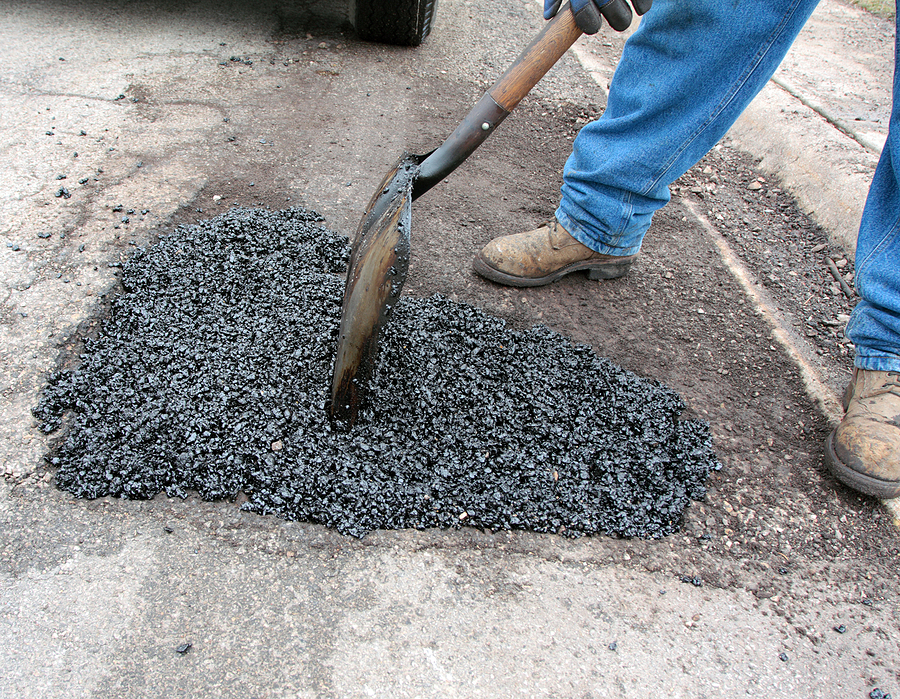
Why Use Cold Patch Asphalt?
The primary reason why cold asphalt patch mix is a common choice for small pothole repairs in asphalt is the ease of installation. There is not a long, extended process of preparing or mixing materials. Instead, the air does most of the work. You simply pour the mix directly into the hole, compact it with simple manual tools (metal tamper or piece of lumber), and leave it to air dry. The mix turns into a permanent surface patch after extended contact with air.
Curing Cold Patch Asphalt Mix
When it comes to applying cold patch asphalt mix, the drying process, also known as curing, is very important. The quality of this curing phase will directly influence how well it establishes a solid, stable surface that lasts a long time. If you want a permanent repair for your asphalt, you need to make sure the entire process is done correctly. If you want to speed up the curing stage of your pavement repair project, you can try a few recommended strategies, including gravel, pouring technique, and forced air.
➽ Gravel – You can use gravel to create a denser space within the hole, which may help to establish lasting strength. Just fill the hole with gravel, little by little, while using your compacting tools to compress the gravel with each layer. Do not fill the hole all the way to the top; be sure to leave 2 inches of space below the surface line for your cold patch mix.
➽ Pouring Technique – As you pour your mix, exceed the surface line by half an inch. This means that your mix should go over the top of the hole by a ½ inch. Then use your compacting tools to compress your material down until it is properly flattened. You may need to repeat this step two or three times to get a proper fill.
➽ High-Powered Drying – Asphalt cold patch mix cures by having contact with air. You can speed up the drying process by using hair dryers or commercial paint dryers. If you are going to use a hair dryer, you will need to manually operate it in a steady, sweeping motion to ensure even curing. The material is near dry when you cannot easily press into the surface with your hand.
Superior Commercial Asphalt Repair and Paving in Central Indiana
Call ACI Asphalt and Concrete at 317-549-1833 for commercial and industrial asphalt paving in Indianapolis, Indiana. Our licensed and qualified paving contractors provide several Indianapolis asphalt and concrete paving services, including pothole repair, winter cold patching, sealcoating, road work, and more. We are the industry veterans to trust for skilled craftsmanship and competitive prices! Request a free estimate, today.


